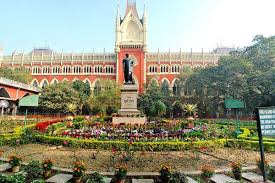+MAT NO. 1099 OF 2023
M/S. BBA INFRASTRUCTURE LIMITED VERSUS SENIOR JOINT COMMISSIONER OF STATE TAX AND OTHERS
Appearance
Appellant: Mr. Vinay Shraff, Advocate. Ms. Priya Sarah Paul, Advocate.
For the State: Mr. T.M. Siddiqui, Ld. Additional Government Pleader. Mr. T. Chakraborty, Advocate. Mr. S. Sanyal, Advocate.
Date of the Order: 13/12/2023
CORAM: THE HON’BLE MR. CHIEF JUSTICE T.S. SIVAGNANAM AND THE HON’BLE MR. JUSTICE HIRANMAY BHATTACHARYYA
Introduction
The High Court of Calcutta contended that the input tax credit (ITC) under Section 16(1) of the GST Act flatters to empowered right only if the qualifications to receive it are fulfilled.
Facts of the case
Advocate appearing for the appellant submitted that though this appeal is against an order refusing to grant interim orders, requested this Court to hear the writ petition as well as questions of law are involved in the writ petition and may not even require an affidavit to be filed by the respondent. Additional Government Pleader appearing for the respondent submitted that one opportunity may be granted to the respondents to file their affidavit-in opposition which request was granted by order, after the affidavit-in-opposition was filed by the respondent, the appeal as well as the writ petition were heard and are now disposed of by this common judgment and order.
The appellant filed the writ petition challenging an order-in-appeal and sought a consequential direction upon the respondent to refund the tax amounting to Rs.28,63,680/- which is alleged to have been recovered by the appellant over 10% of the disputed tax amount and to prohibit the respondents from taking further cohesive action against the appellant. The order impugned in the writ petition was passed under Section 107 of the Central Goods and Services Tax Act, 2017 and West Bengal Goods and Services Tax Act, 2017 (hereinafter referred as the GST Act) whereby the Input Tax Credit availed by the appellant amounting to Rs. 28,65,780/- from the period from November 2018 to March 2019 was denied on the ground that the returns for the said period were filed beyond the statutory time limit stipulated in Section 16(4) of the GST Act.
Facts leading to the filing of the writ petition are that a show-cause notice was issued to the appellant calling upon the appellant to explain why Input Tax Credit amounting to Rs. 28,64,780/- for the period from November, 2018 to March, 2019 should not be denied as returns for the FY 2018-19 were filed beyond the statutory time limit that is 29.10.2019. The appellant by representation requested for an extension of time. the second respondent passed an order directing the appellant to pay tax, penalty and interest on the ground that the statute has set down a time frame within which a taxable registered person can claim ITC. The appellant appears to have not paid the tax, penalty and interest as demanded and the reminder was sent by the department to deposit the entire dues on or before 10.09.2021. The appellant did not comply with the demand and consequently, the department on 11.09.2021 debited the amount from the electronic cash ledger/ credit ledger of the appellant. The appellant filed an appeal before the statutory appellate authority.
Judgment used by the court in command Union of India Versus Bharti Airtel Ltd , wherein the late fee payable under Section 47 of the Act was waived. Global Ltd. Versus. Union of India, in the case of the appellant the returns were filed well beyond the period stipulated under Section 16(4). The imposition of penalty was well justified as the appellant had committed fraud by making a false and dishonest representation in GSTR-3B return for the aforementioned period and claimed ineligible ITC and thereby reducing the net tax liability. The State of Tamil Nadu Versus M.K. Kandaswami and Others 3 ALD Automotive Private Limited 4 TVS Motor Company Limited Versus State of Tamil Nadu and Others , The decision of the High Court of Andhra Pradesh in Thirumalakonda Plywoods Versus The Assistant Commissioner- State Tax WP 24235 of 2022 dated 18.07.2023 and the decision of the High Court of Judicature at Patna in Gobinda Construction Versus Union of India and others in Civil Writ Jurisdiction.
Analysis of the court
The bench of Chief Justice T.S. Sivagnanam and Justice Hiranmay Bhattacharyya noted that section 16(2) is not a provision that allows income tax credit rather section 16(1) authorizes provision and section 16(2) imposes a limit on credit that is otherwise allowed to dealers who fulfilled the requirements prescribed by the interpretation given by the court that the stipulation in Section 16(2) is the restrictive provision is the correct interpretation given to Section 16(1) of the GST Act.
all the above reasons, we find no ground to grant the relief sought for by the petitioner in the writ petition.
Consequently, the appeal as well as the writ petition are dismissed.
“PRIME LEGAL is a full-service law firm that has won a National Award and has more than 20 years of experience in an array of sectors and practice areas. Prime legal fall into a category of best law firm, best lawyer, best family lawyer, best divorce lawyer, best divorce law firm, best criminal lawyer, best criminal law firm, best consumer lawyer, best civil lawyer.”
Written by Kaulav Roychowdhury


